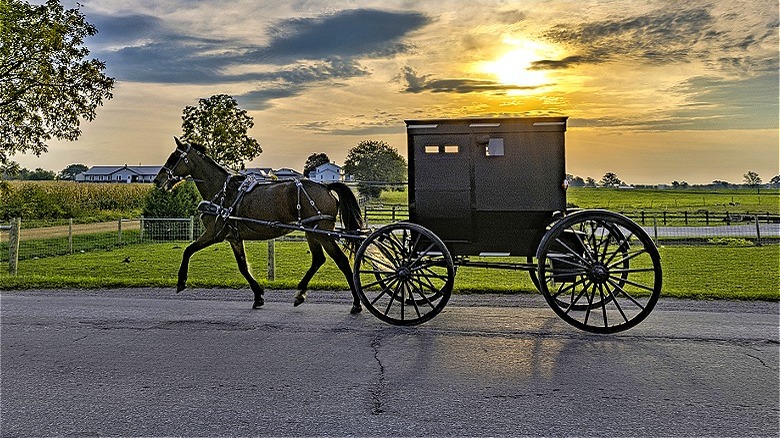Do Amish Pay Taxes?
When you picture the Amish, several stereotypes quickly come to mind. For example, their simple, homemade clothing; quaint horse and buggy transportation; and the shunning of technology. Yet, you might be surprised to learn many Amish are savvy entrepreneurs. Besides selling food items grown on their farms, the Amish are also known for producing quality furniture. Those same handy qualities have also spurred many Amish construction crews to build homes for the general public. And yes, these construction workers use modern power tools, which is permissible for business purposes.
Along with other sometimes mysterious qualities of the Amish, you may have also heard that they aren't required to pay taxes, but that's not exactly true. To begin, there are many other types of taxes besides state and federal income tax (see which income tax bracket you're in here). Regardless of one's beliefs, everyone pays sales tax on goods purchased, for example, property tax on a home, and other hidden taxes like those levied on gasoline and alcohol. However, the Amish do happen to pay regular income tax as well. What they're exempt from paying is the Social Security component of income taxes.
Amish view Social Security as insurance
If you've ever examined your pay stub closely, you've noticed that 6.2% is deducted from your gross wages for Social Security (and Medicare), up to a maximum income of $168,600 for 2024 (for 2023, it was $160,200). The total tax rate for Social Security is actually 12.4%, but your employer pays half of that amount for you, hence the 6.2% rate. Self-employed types, like freelance writers, for example, are required to pay the 12.4% themselves.
So why are Amish individuals exempt from paying Social Security and Medicare contributions? Because the group believes in total self-sufficiency and views programs like Social Security as a sort of forced insurance policy. Instead of relying on financial help from the government, the Amish community pulls together to care for the sick and/or elderly at its own expense.
Although Social Security was established in 1935 to provide an income stream to retired workers (with any luck, Social Security benefits will still exist for Generation X and younger), it took until 1965 for the Amish, Mennonites, and select other religious groups to win the battle for exemption from participating — and paying into the system. Since the Amish aren't paying into programs like Social Security, neither are they allowed to access them. The same goes for other safety nets like unemployment insurance.
Some non-religious groups are also exempt
It's not just religious groups that are exempt from paying into Social Security, either. Famously, railroad workers aren't required to pay Social Security tax. Instead, their own agency, called the Railroad Retirement Board, collects a separate set of taxes. Those funds are used to finance the retirement of railroad workers, as well as administer unemployment insurance, when necessary. (Here, by the way, is what really happened to pensions.)
In summary, the Amish pay taxes. They pay the same levels of income tax as other Americans, as well as other types of taxes like sales tax and property tax. However, the Amish are exempt from Social Security and Medicare taxes in favor of faith in the community rather than the government to care for the sick or elderly who are no longer earning income. Even among younger Amish folks, any type of insurance is rejected because it's viewed as a lack of confidence in the community to help with an emergency or distressing situation.
Finally, you now might be wondering how the Amish file tax returns without a Social Security number? Advice varies, but a typical workaround is that the field is left blank or filled in with all zeroes. (What exactly is a tax ID number, anyway?) Amish taxpayers or their tax preparers may also be able to write the word "Amish" or select it from a drop-down menu if filing electronically. Note, Amish taxpayers may also be required to obtain an SSN but for tax purposes only, such as when filing IRS Form 4029 to establish their exemption from Social Security and Medicare taxes.


